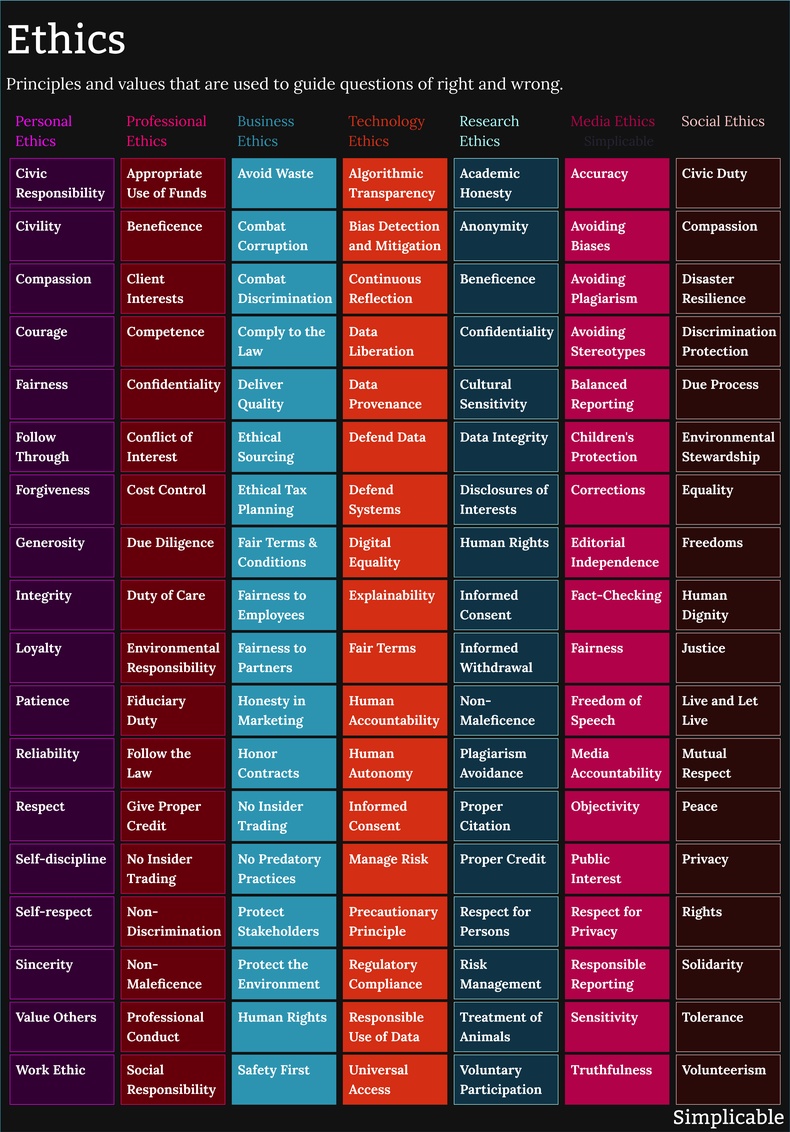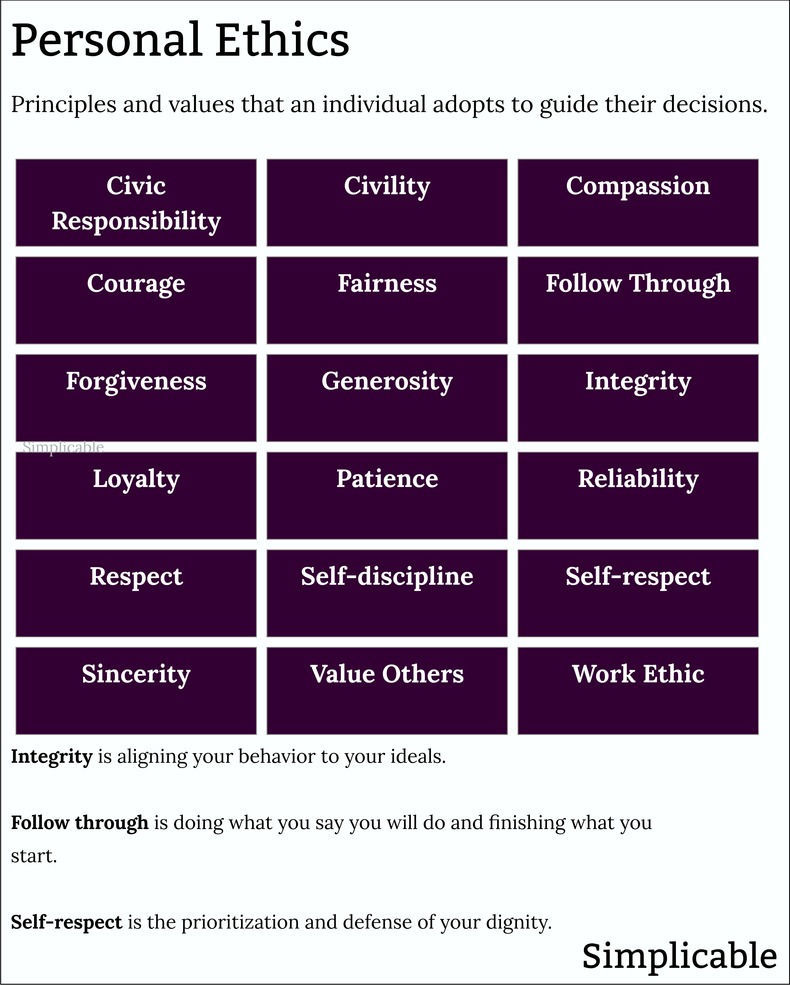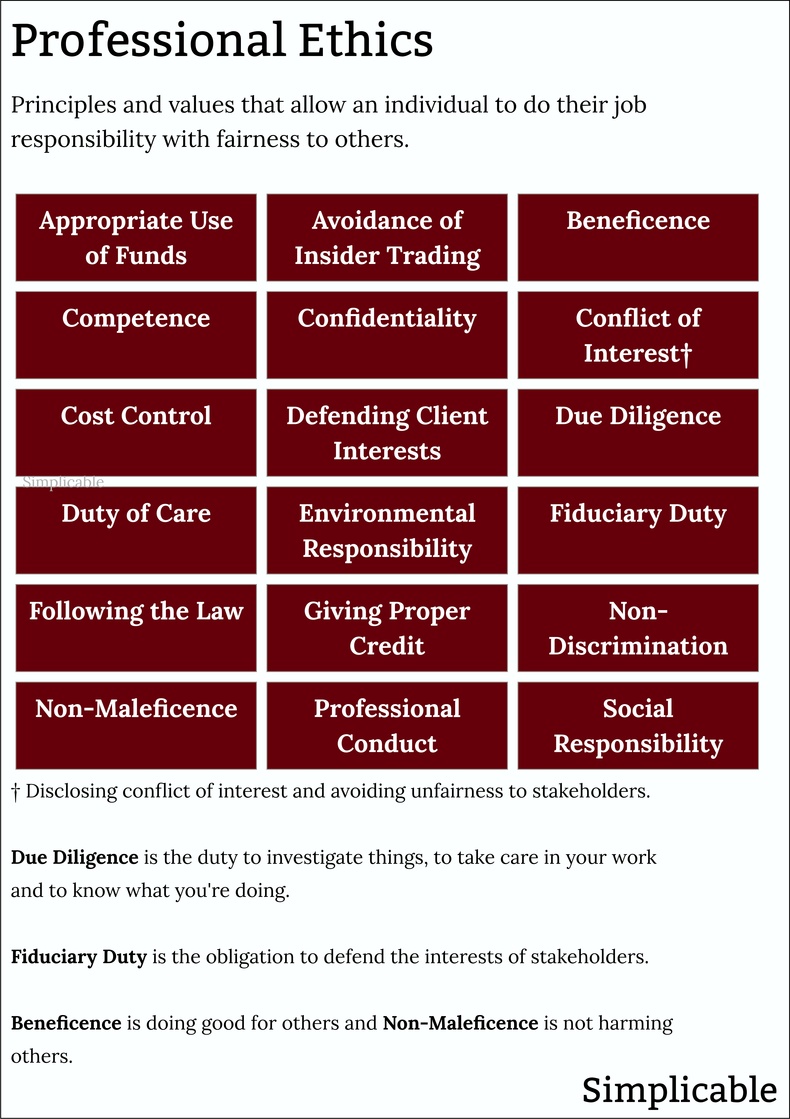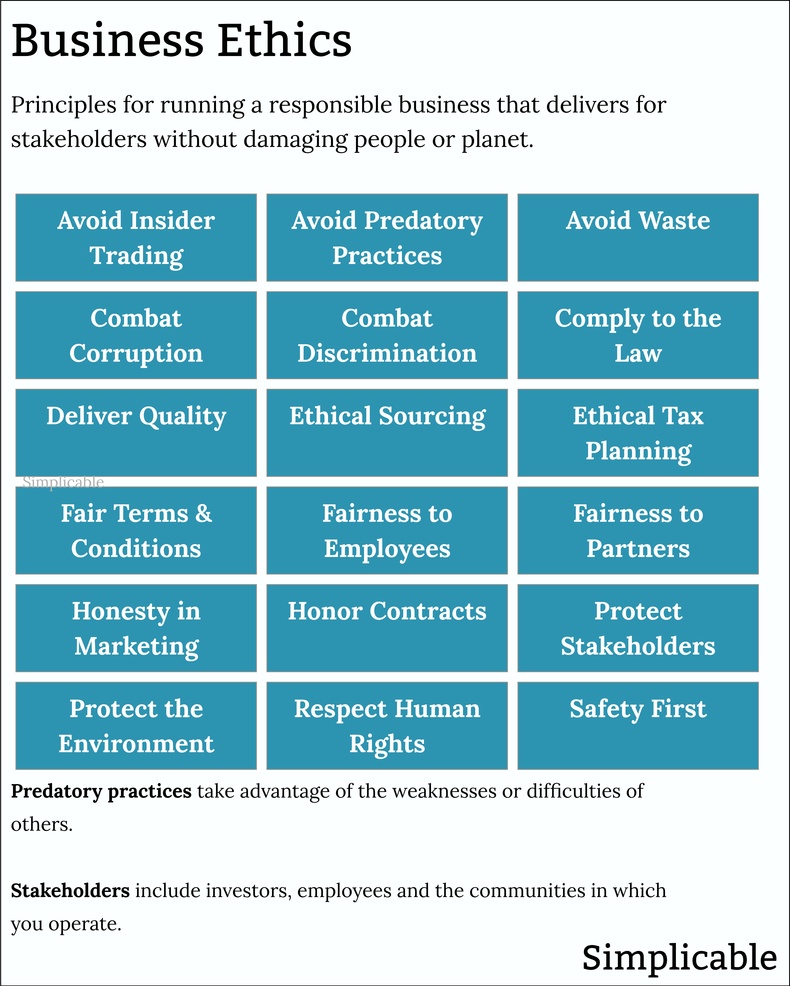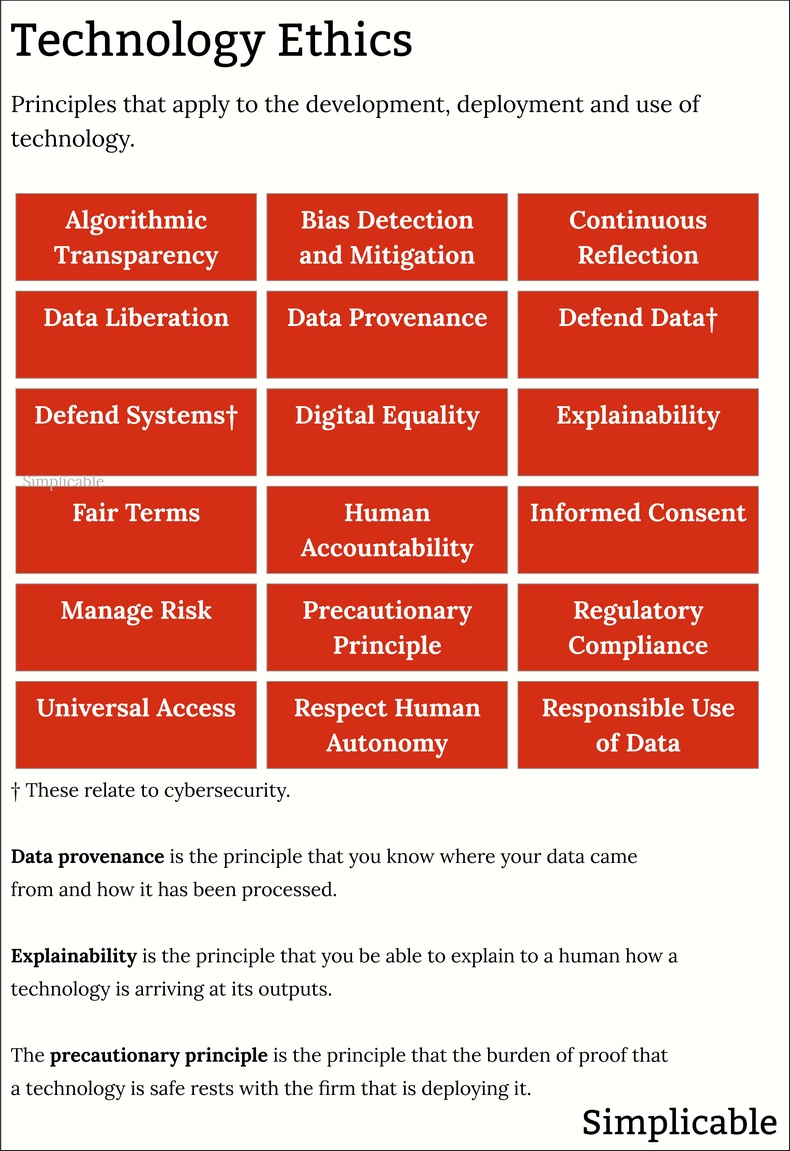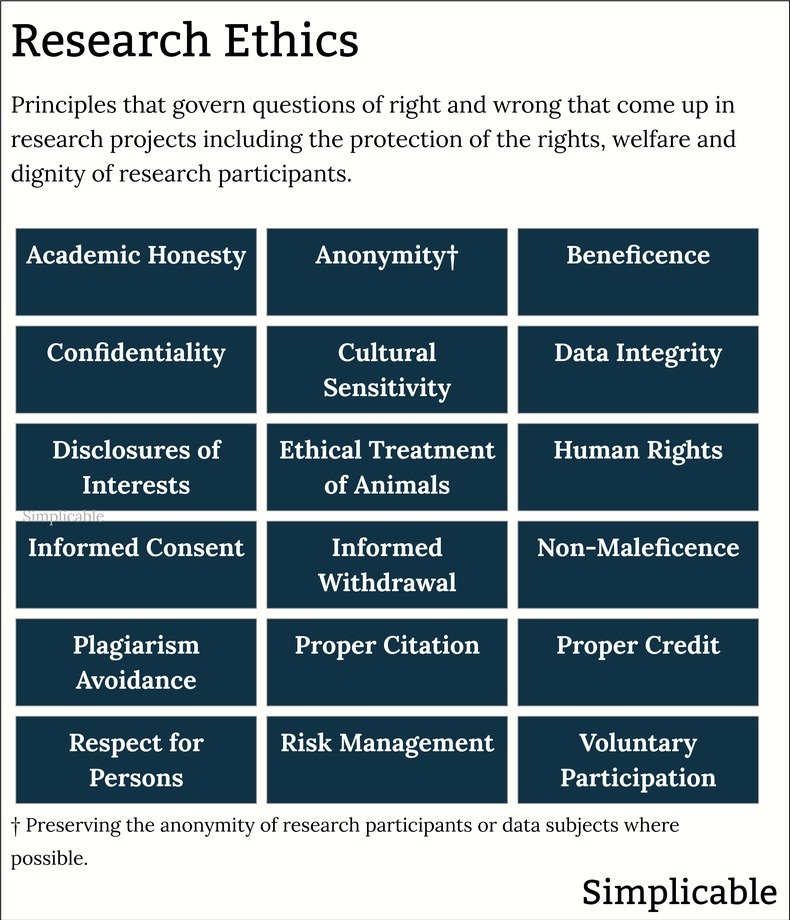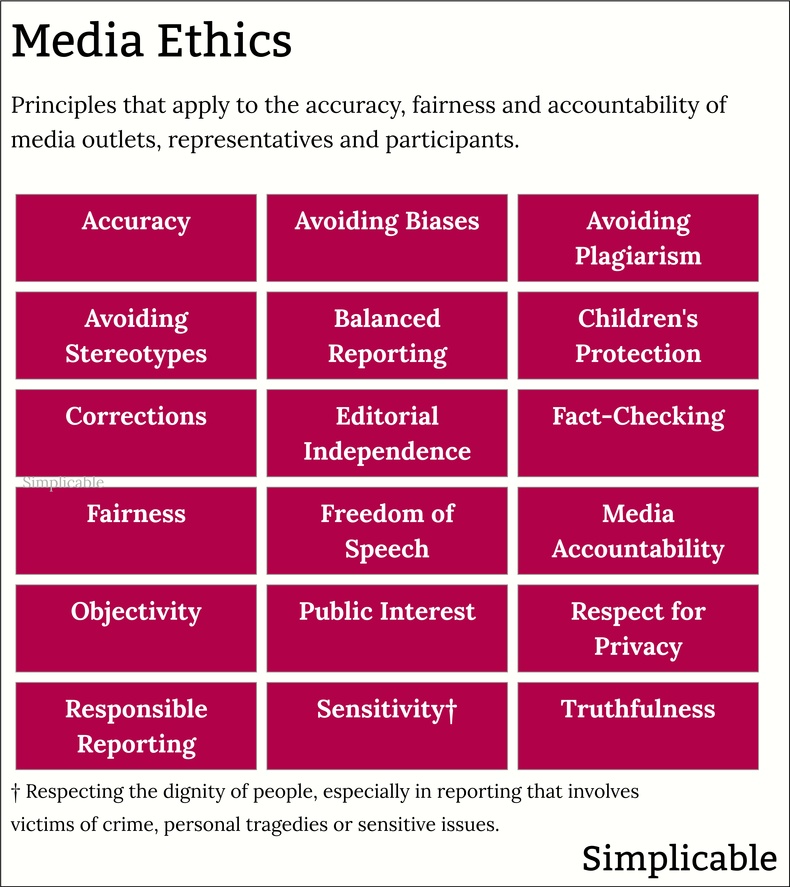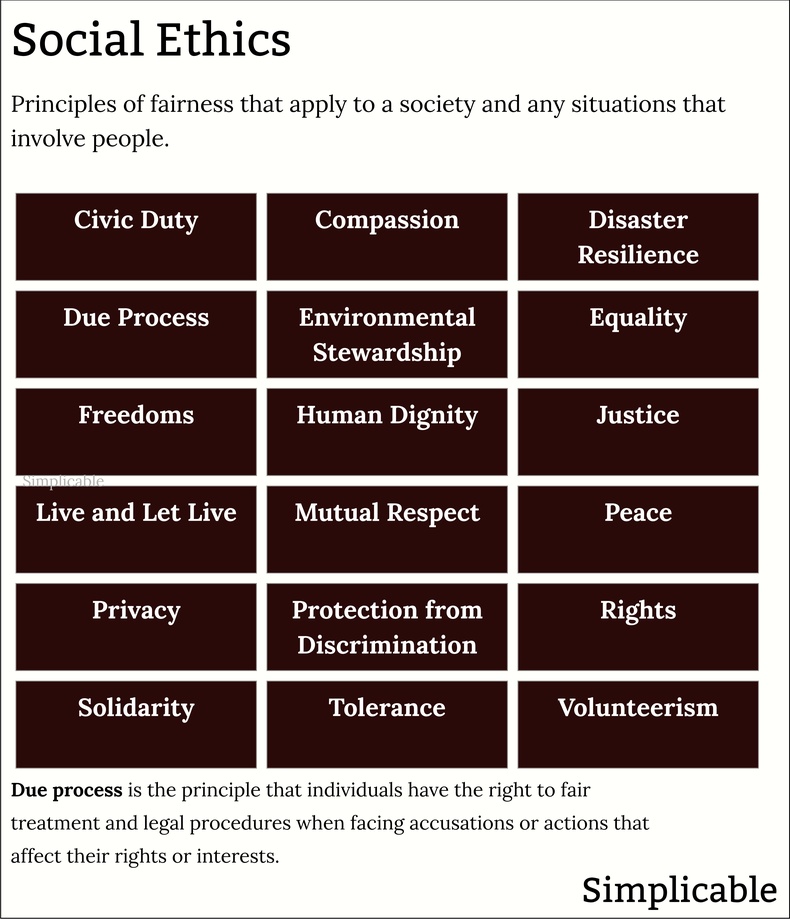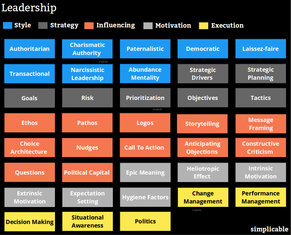|
| |
Ethics are principles and values that deal with questions of right and wrong. More broadly ethics is knowledge that concerns morality. This is used to guide decisions and navigate difficult questions where the fair path isn't always clear. The following are common examples of ethics.
Personal EthicsPersonal ethics are principles and priorities that you set to guide decision making where what is right or wrong may be difficult to determine. These can be one word concepts such as loyalty that have broad implications such as prioritizing loyalty to your family over other concerns or needs. Personal ethics can also include statements that guide behavior such as the golden rule of "treating others as you would like to be treated."Professional EthicsProfessional ethics are principles of right and wrong that apply to your work. This includes competence whereby you acquire the knowledge and skills to do your job properly. Professional ethics can also include principles related to high standards of work, treating people well, defending the interests of stakeholders and not harming the environment.Business EthicsPrinciples that are put in place by a business to guide its governance. Ideally, business ethics aren't an obscure document but are a living element of workplace culture that are often communicated and used to guide strategy, management and decision making at every level of a firm.Technology EthicsPrinciples that are used to govern technology development, deployment and use. Technology ethics include the principle that humans remain accountable for the technologies they deploy and should be able to explain what technology is doing in plain language. They also include the precautionary principle that the burden of proof that a technology is safe lies with the firm deploying it.Research EthicsPrinciples that govern questions of right and wrong that come up in research. These may be established by industries and institutions such as universities or research projects themselves.Media EthicsPrinciples that govern media outlets, particularly journalists and media that concerns news or factual information. Generally speaking, reporting on serious matters or important facts creates a higher obligation to be ethical. Entertainment media that is purely fictional would have a different set of ethical principles.Social EthicsPrinciples of right and wrong that apply to a society or any participation in society. At the level of a nation, these are often enshrined in a constitution or similar document that provides a foundation for the legal system of that nation. Social ethics can also be adopted by institutions, organizations, teams and individuals as a way to guide fairness to people.Next: Ethical Issues
Ethics
This is the complete list of articles we have written about ethics.
If you enjoyed this page, please consider bookmarking Simplicable.
© 2010-2023 Simplicable. All Rights Reserved. Reproduction of materials found on this site, in any form, without explicit permission is prohibited.
View credits & copyrights or citation information for this page.
|
